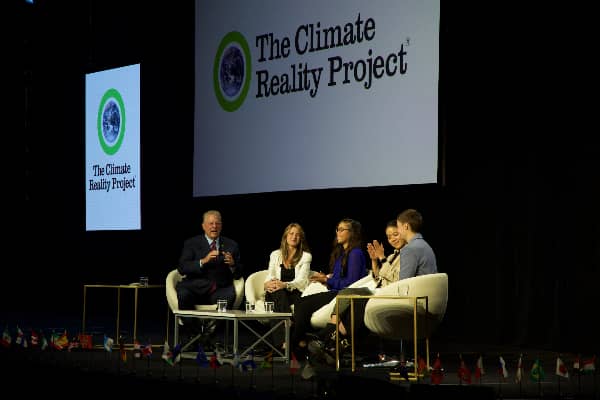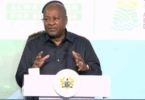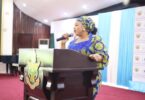
Story by: Ishmael Barfi
Former US Vice President Al Gore has reiterated the need to reform the global system for the allocation of capital so that resources are more easily available in developing countries to participate in this sustainability revolution that’s based on solar energy and wind energy, electric vehicles, batteries, regenerative agriculture, and other solutions”.
As the world prepares for COP28 climate talks in Dubai, Al Gore expressed concern about the world leaders’ effort to achieve net-zero emissions which is being driven by the fossil fuel industry, neglecting essential advancements in achieving key targets.
Former US Vice President Al Gore who is in Accra for the first time made the passionate call the 54th Climate Reality Leadership Training.
The Climate Reality Leadership Training held on 13-15th November, 2023 is one of the largest gatherings of scientists, experts and youth across the African continent providing overview of the latest climate science, existing policies, solutions and opportunities for advocates to make a difference.
The Climate Reality Project is a non-profit climate action organization founded in 2006 by former US Vice President Al Gore.
At a media roundtable, Al Gore acknowledged that developing countries are often hit the hardest by the impacts of the climate crisis though they contribute less to the global crisis, climate change.
This he attributed to the less resources of these developing countries to be resilient and to defend the infrastructure and the people who are affected.
Interestingly, a critical subject at the global climate talks is the call for developing economies, like Ghana, to decarbonize.
And Ghana has for the past decade regarded its crude oil production as a vital resource for national development and funding source for the country’s net-zero ambitions.
With huge oil reserves remaining untapped, Ghana’s Energy Minister has stated that the country faces a real risk of stranded multi-billion oil and gas assets due to reduced funding for fossil-related projects, as the world transitions to cleaner sources of energy.
Answering questions from Journalists at the media roundtable meeting with regards to Ghana, Al Gore believes that, Ghana can lead fossil fuel decolonization.
The above he noted is as a result of Ghana leading decolonization of governments on the continent of Africa, hence the very first country to gain independence.
Adding “I use that in an effort to inspire a change, but it’s also an accurate history of what the people of Ghana have done in the past.
Therefore the US former Vice President stressed that, economic independence from fossil fuel colonization can be achieved with the elimination of subsidies for fossil fuels and the redirection of public funding to help subsidize the renewable sources of energy, which are cheaper, cleaner, provide more jobs. So, I do think that Ghana could lead this needed change on the continent of Africa.
Speaking on advanced economies getting committed to developing economies like Ghana in terms of delivering on the climate finance promises expected, he was of the view that, there is likely to be a commitment for more money from the private sector to developed countries to developing countries.
However he noted that, the amount that would be committed unfortunately may not reach the levels that leaders in developing countries would like to see saying “And it’s never easy to describe political realities”.
“So yes, I think there will be an additional commitment of funding. But the total amount will lead many leaders in developing countries probably to say that’s not enough. The real source of money that is needed is going to come from the private sector”.
According to him, in order to unlock those flows from the private sector, there need to be policy reforms like the elimination of subsidies for fossil fuels and reforms at the international level such as changes at the World Bank and multilateral development banks to make it possible for countries like Ghana to gain access to private investment capital.
At COP28, there will be demands on global leaders to phase out fossil fuel emissions and stop funding fossil fuel projects; increase funding for climate solutions in countries that need it most; and reform future COP processes so that fossil fuel interest cannot block progress.
Source: www.thenewindependentonline.com








